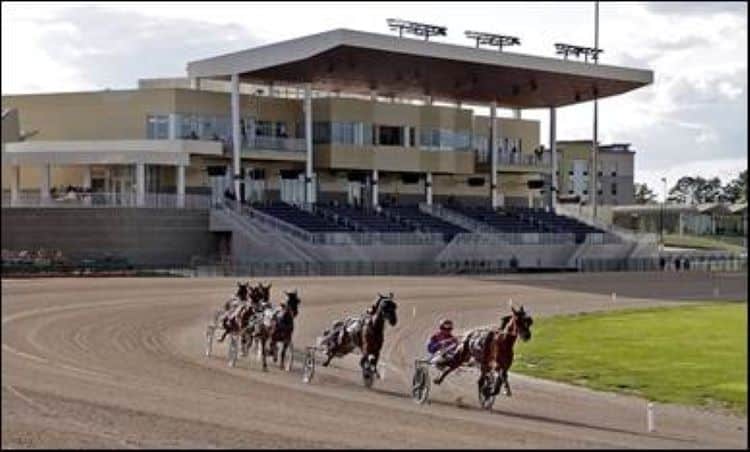Just over six months remain before the date of Jan. 1, 2023, arrives.
On that day, Ohio’s gambling scene will look a lot different than it looks now. That’s the day when sports betting will launch in the Buckeye State.
It will have been a long time coming, considering it’s going to end taking more than a year since the legalization date to launch sports wagering in Ohio. With neighboring states Michigan, Indiana, Pennsylvania, and West Virginia already offering various forms of sports betting, Ohioans have been crossing state lines to place bets for a number of years. They’ve been waiting patiently on the day when they’d no longer have to travel outside the state to place a sports bet.
Once Gov. Mike DeWine signed HB 29 on Dec. 22, Ohioans began pushing for a quick launch date for retail and mobile sportsbooks. Many, including politicians, had expressed hopes of seeing a sports betting platform up and operating by the fall. There were some wishing to have a chance to place bets by the time the NFL and college football seasons commence in late August/early September.
However, Ohio Casino Control Commission Executive Director Matt Schuler put such wishful thinking to rest when he announced on June 1 that the universal launch date would be Jan. 1.
Launches by comparison
Whereas Ohio’s launch will have waited just over a year, other states like Arizona and Colorado required half the time to build and eventually launch sports betting platforms.
The launch date in Arizona was Sept. 9, 2021, which was the same day the NFL’s first game of the 2021-22 season was held, between the defending Super Bowl champion Tampa Bay Buccaneers and the Dallas Cowboys.
“It was a whirlwind over the summer leading up to the launch,” said Max Hartgraves, the Arizona Department of Gaming’s public information officer. “It took less than five months to get operational.”
Hartgraves said once government officials signed off on HB 2772 legalizing sports betting and fantasy sports in conjunction with tribal gaming in Arizona, the rules-making process for sports wagering was fast-tracked and that eliminated having “to go through all the waiting for approvals.”
Hartgraves said they consulted with officials from other states that already had sports betting in place. They kept open the lines of communication with industry stakeholders, particularly those who were already operating in other states. Hartgraves said Arizona’s sports betting industry totaled $400 million in handle during the opening month and was up to $500 million in handle by the month of January.
“It was a pretty quick turnaround from the time HB 2772 passed with a two-thirds majority, legalizing sports wagering in the state,” Hartgraves said. “It really went well, all in all.”
Anticipation for a massive universal launch
Ohio is pushing for a massive launch of sports betting on New Year’s Day. That will include mobile sportsbooks and brick-and-mortar facilities open for sports betting activity. It’s been a week since BetMGM Ohio and PointsBet Ohio became the first mobile sportsbooks to submit applications for licenses in the state, but the commission is expected to receive plenty more applications in the coming weeks.
In total, the commission can issue up to 25 Type A licenses, and each can have two skins, potentially totaling 50 digital platforms. Schuler has encouraged stakeholders to submit applications during the designated timeframes in order to receive approval in time to be up and running on the universal launch date.
Arizona’s launch date was done on a much smaller scale, with mobile sportsbooks accounting for “the vast majority” of action, according to Hartgraves.
Sports betting has been a reality in Colorado for more than two years. Like Arizona, it didn’t require an entire year to build a sports betting platform. Bettors were placing wagers on sporting events six months after officials passed legislation.
Colorado’s launch date for sports betting was May 1, 2020, early in the pandemic when the 33 casinos located in the three Colorado mountain towns were closed because of COVID-19 concerns.
Colorado Department of Revenue Division of Gaming Director Dan Hartman said Colorado launched with four mobile operators, and two more joined two days later. Since professional and college sports were basically shut down across the nation because of the pandemic, Hartman said Colorado residents were limited to placing wagers on “table tennis, darts from Australia, baseball in Asia.”
Despite a limited selection of betting options, which didn’t include any opportunities at any brick-and-mortar facilities, Hartman thinks Colorado’s launch still was successful.
“I thought May was a great time for us,” Hartman said, referring to the launch month. “It turned out to be a really good time for us because there wasn’t really anything going on. We didn’t have 20 [operators] launching at the same time. They came on within a month, or a month and a half. Then we had 10 or 15 running, and the rest of them came up as they wanted to. It gave us time to kind of work through each one, and any issues that they had. We had very few issues at all.”
Making it work through a pandemic
Today, there are 25 mobile operators and 17 brick-and-mortar retail operators in Colorado. Most of Colorado’s sports betting activity still takes place online — Colorado Department of Revenue Communications Supervisor Suzanne Karrer said “98 percent” of sports wagers take place online in the state. It was noted that most Colorado residents are more than an hour’s drive outside the three towns (Central City, Black Hawk, Cripple Creek) where casinos exist. In Colorado, the law limits non-mobile sports wagering to only those casinos. In comparison, Ohio’s regulations will allow retail sports wagering at sports bars and restaurants, right along with placing wagers at the 11 casinos/racinos in the state.
Hartman said Colorado regulators didn’t try to “reinvent the wheel” when it came to building a sports betting platform. They worked to keep the process as simple as possible, beginning with consulting with officials from New Jersey and Nevada about their experiences in developing and managing sports betting. They also spent time with approximately 50 stakeholders over 20 hours discussing what regulations they liked and didn’t like in other states where sports betting already existed.
“We launched with temporary licenses based on their activity in other states and their approval in other states,” Hartman said.
Colorado tallied $25 million in sports wagers during that first month of activity, according to Hartman. Colorado’s best month came in January 2022, when it recorded $573 million in sports wagers. Through April, Colorado had recorded just shy of $7 billion in wagers dating back to the May 1, 2020, launch date.
Halfway home to first sports bets
With more than 11 million residents in Ohio, there are approximately twice as many people living in the Buckeye State as in Colorado. With the seventh-largest state by population and what will become the fourth largest state with legal wagering, Ohio is expected to be a significant entry into the sports betting domain.
Ohio’s methodical approach to building a sports betting platform in comparison to the likes of Arizona and Colorado has tested the patience of plenty of Ohioans, who continue anticipating the day when they’ll no longer have to visit neighboring states to place legal wagers.
At six months into the process of building Ohio’s sports betting platform, the commission is halfway home to Ohioans placing their first wagers in the state. At the same point in their respective processes, residents in Arizona and Colorado were already placing bets.
“Everybody does what works for them,” Hartman said.










